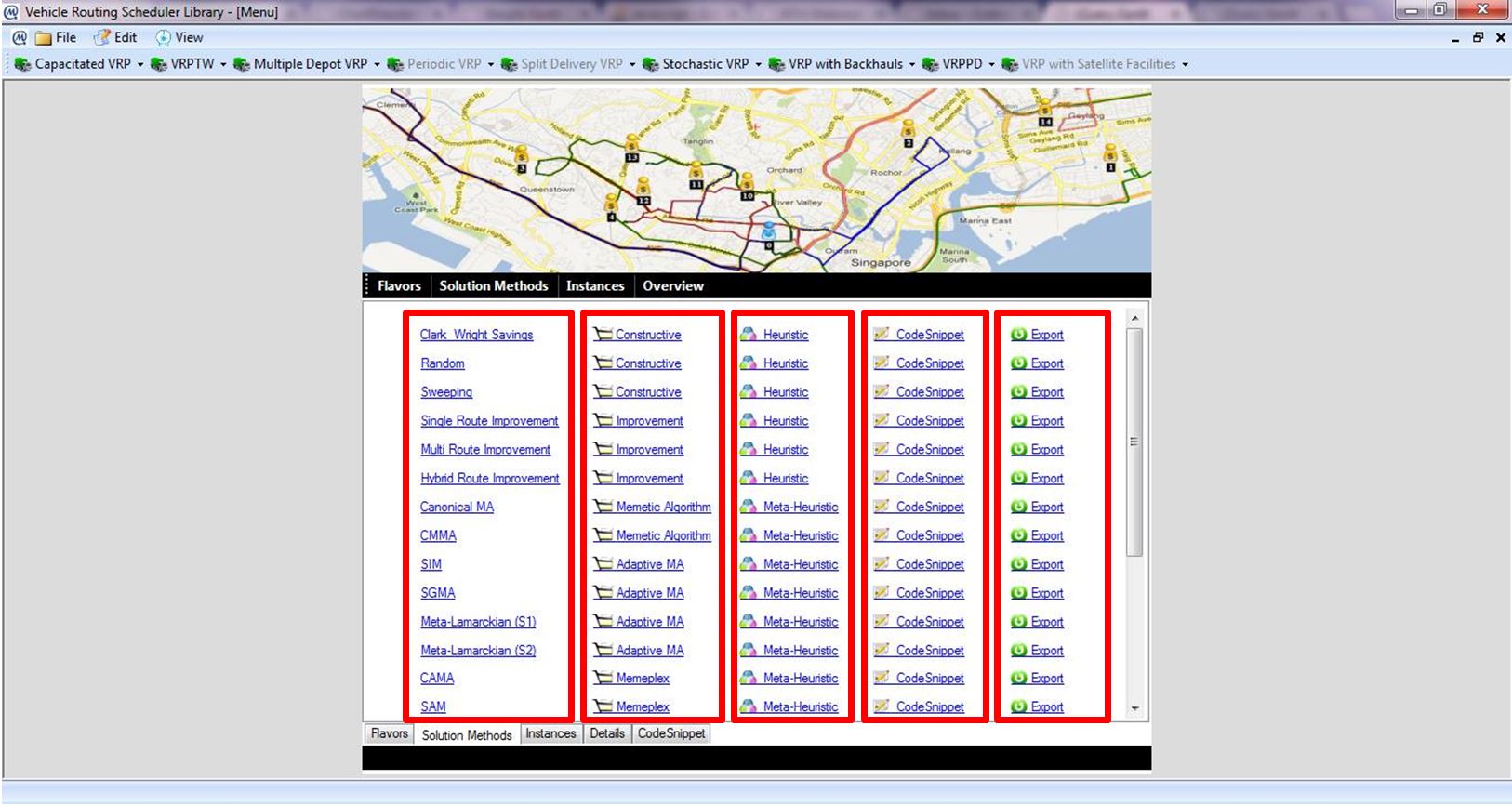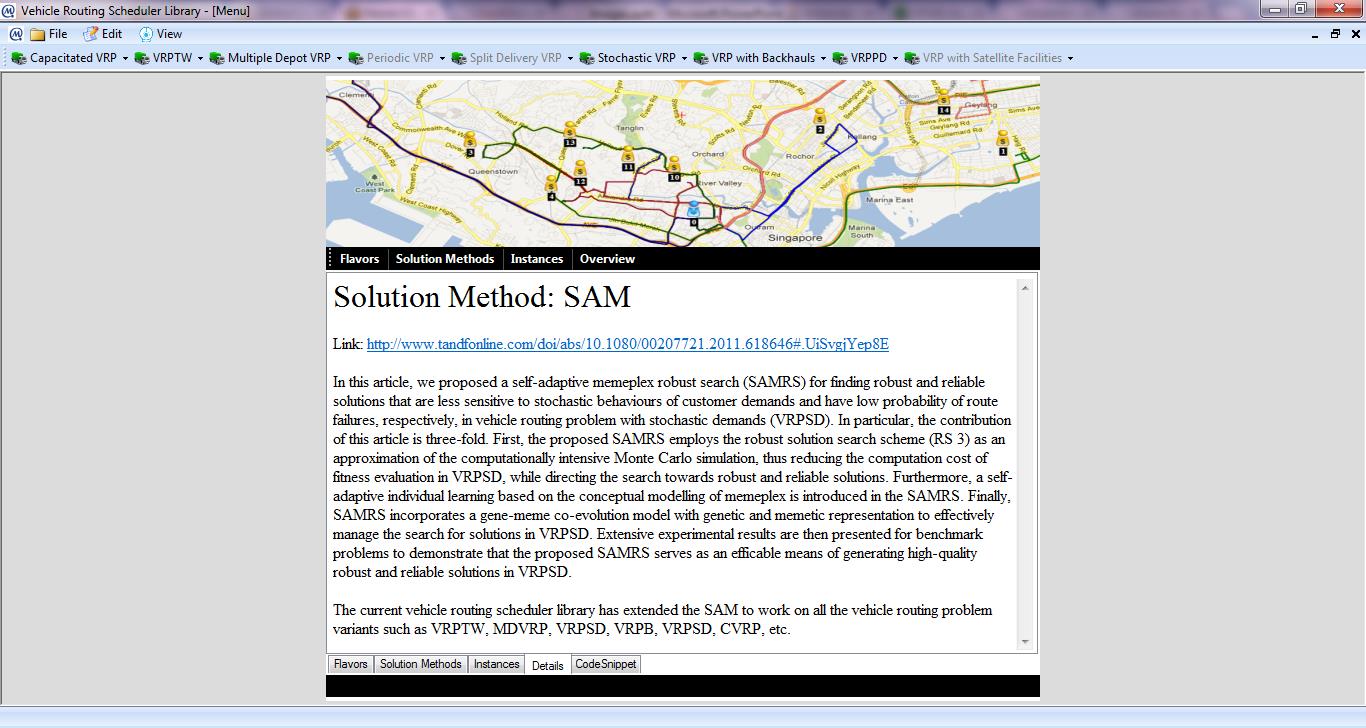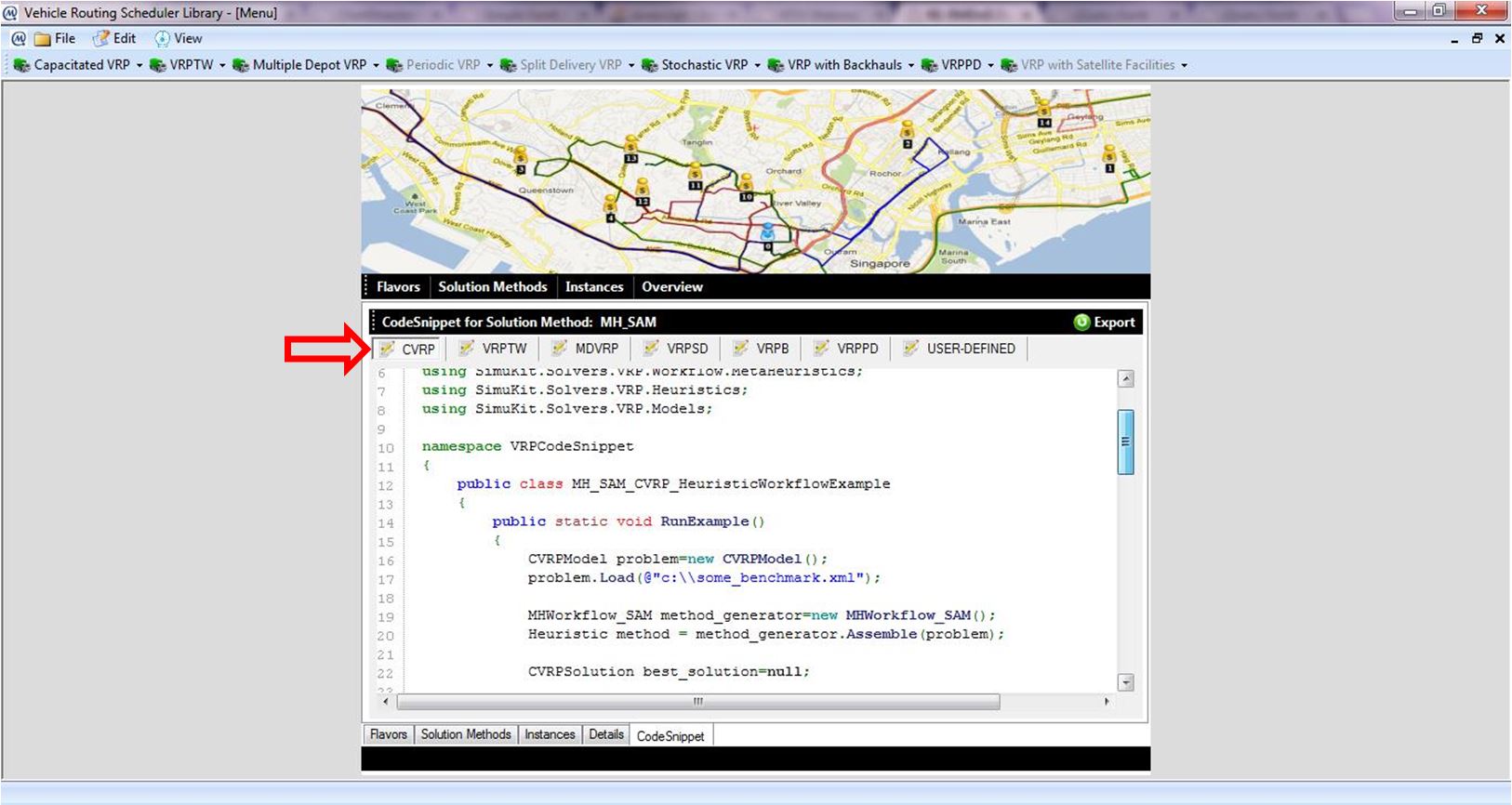Solution Methods
Solution Methods section provides information about various schedulers and their source codes in 5 sub sections as shown in Figure.
- Solution Method Introduction: Solution Methods section provides introduction and further reading source for each solution method as illustrated in Figure. It illustrates the page showing the introduction and further reading source for the SAM solution method when the link SAM in this column is clicked.
- Algorithm Type: Solution Methods section provides explanations for algorithm type of each solution method. Introduction and further reading source for each algorithm type are presented as shown in Figure. It illustrates the page showing the introduction and further reading source for the Adaptive MA when the link Adaptive MA in this column is clicked.
- Heuristic Type: Solution Methods section also provides information about whether the solution method is Simple Heuristic or Meta-Heuristic. Further explanations on the definition of heuristic and meta-heuristic are described as shown in Figure. It illustrates the page showing the introduction and further reading source for the meta-heuristic when the link Meta-Heuristic in this column is clicked.
- Code Snippet: Solution Methods section supports code snippet of each solution method on various VRP problem variants. Code snippet sub section provides generated source codes in embedded code editor for each solution method on a specific VRP problem variant as shown in Figure. Each tab in embedded code editor allows user to access the code snippet of solution method on VRP variants. It also provides code snippet template for users to define their own VRP constraints (USER-DEFINED tab). Furthermore, users can export the code snippet together with the library so that they can incorporate them into their development projects. Figure illustrates the code editor showing the code snippet for the SAM solution method on the CVRP variant when the CodeSnippet link on the SAM row is clicked in this column.
- Export: Solution Methods section provides export functionality for solution method codes on various VRP problem variants which users can incorporate into their own development project for solving various routing problems. Relevant source codes and scheduler libraries as well as benchmark files will be exported based on the chosen solution method as shown in Figure. It illustrates the exported codes and scheduler libraries as well as benchmark files when the Export link (in the Canonical MA row of the fifth column) is clicked.
The benchmark_xxx folder contains the XML benchmark instances which can be loaded by the scheduler. Each .cs source code file contains the implementation of the Canonical MA scheduler for each problem variant. After user adds the .cs files and .dll library to their own .NET development project, user can invoke the CanonicalMA to solve his CVRP instance (supposed the CVRP instance data is contained in a file benchmark.xml) by calling:
MH_CanonicalMA_CVRP_HeuristicWorkflowExample.RunExample(“benchmark.xml”);





